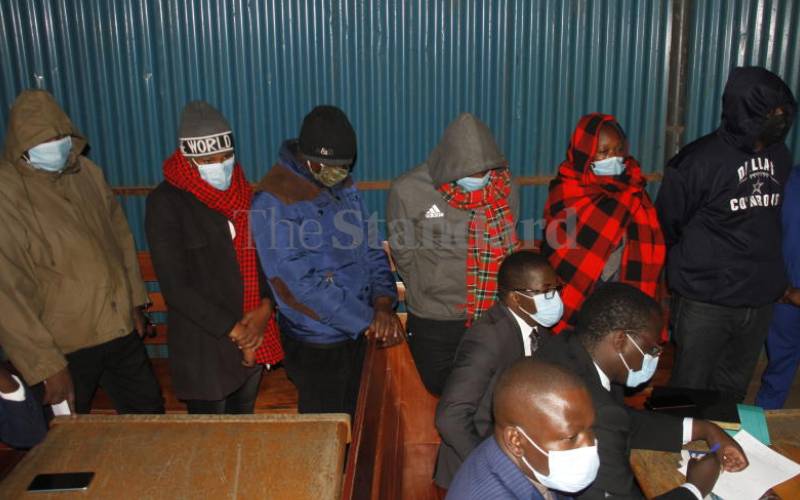×
The Standard e-Paper
Smart Minds Choose Us

Over the past week, eight police officers have been arrested and charged over the deaths of brothers Benson and Emanuel Njiru in Kianjokoma, Embu, on the one hand, and that of Vitalis Owino in Mathare, Nairobi.
They all died under suspicious circumstances while in police custody. On Wednesday, the Director of Public Prosecutions (DPP) directed the Inspector General of National Police Service to interdict the senior officer in charge of the Manyatta Police Station in Embu and the Officer in Charge of the Police District.